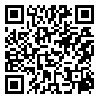BibTeX | RIS | EndNote | Medlars | ProCite | Reference Manager | RefWorks
Send citation to:
URL: http://ijme.tums.ac.ir/article-1-5850-en.html

 , Seyyed Mahdi Salehi2
, Seyyed Mahdi Salehi2 
 , Seyyed Mahdi Ghoreishi2
, Seyyed Mahdi Ghoreishi2 
 , Amir Hamzeh Salarzaee3
, Amir Hamzeh Salarzaee3 
 , Nazafarin Ghasemzadeh *
, Nazafarin Ghasemzadeh * 
 4
4
2- Faculty of Literature and Humanities, Jurisprudence and Islamic Law Department, Urmia University, Urmia, Iran.
3- Associate Professor of Jurisprudence and Principles of Islamic Law, University of Sistan and Baluchestan, Zahedan, Iran
4- PhD Candidates in Medical Ethics, Medical Ethics and History of Medicine Research Center, Tehran University of Medical Sciences, Tehran, Iran
Reproduction and fertility are considered a substantial need for the survival of the human race and has seen its ups and downs. Advances in Assisted Reproductive Technology (ARTs) have brought some changes as well as challenge in human reproduction. For instance, involvement of a third-party in pregnancy has become a challenging practice. Given the rapid application of ARTs in Iran, obscure aspects and consequences associated with this technology need to be elaborated. The present study aimed at investigating the identity and rights of children resulting from ARTs based on the existing laws and the opinions of the contemporary Shi’ite Grand Ayatollahs. First, by reviewing the sources of Islamic law as well as searching the legal and reliable electronic resources -using key terms such as parentage, guardianship, embryo donation and infertility- the existing laws and regulations about ARTs have been analyzed. Then, by a qualitative method, written opinions of some contemporary Shi’ite Grand Ayatollahs regarding the identity and the rights of a child born by involvement of a third party were collected. The result shows inconsistency between the opinion of the contemporary Islamic jurists and the existing law about embryo donation. Islamic Jurists believe that the child of embryo donation does not belong to the recipient couple. However, according to the Embryo Donation Act, in particular with regard to the duties placed upon infertile couples, who receive the donated embryo, implicitly accept the recipient couple as the parents of the child. This eventually leaves the child with an identity crisis besides deprivation of citizenship rights in some cases. Accordingly, as the current rules and legislations of Iran conflicts with views of the Islamic jurists, to resolve this problem, a revision to accept the recipients as legal parents of the child is necessary.
Received: 2016/12/25 | Accepted: 2017/04/29 | Published: 2017/04/29
| Rights and permissions | |
 |
This work is licensed under a Creative Commons Attribution-NonCommercial 4.0 International License. |



